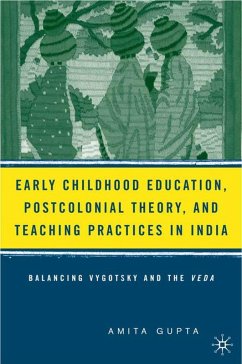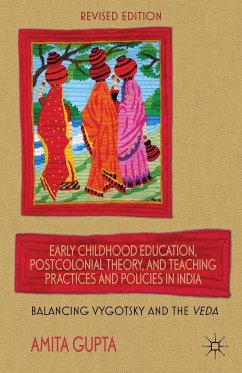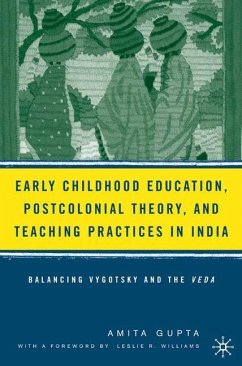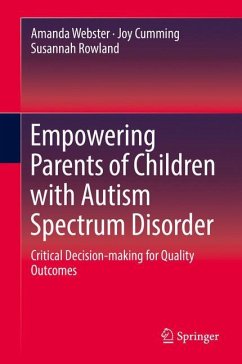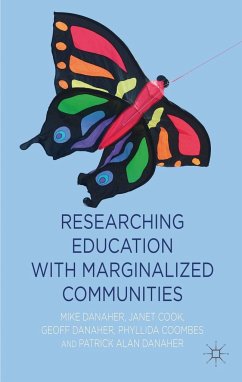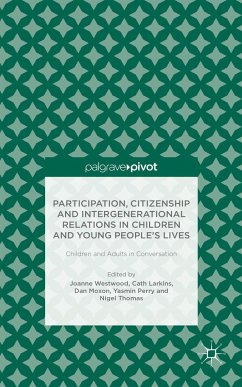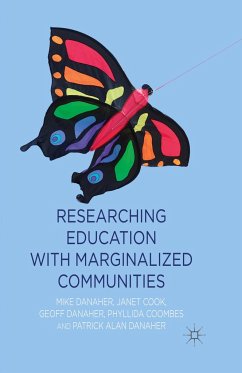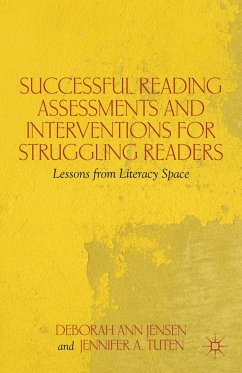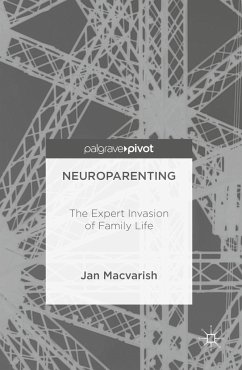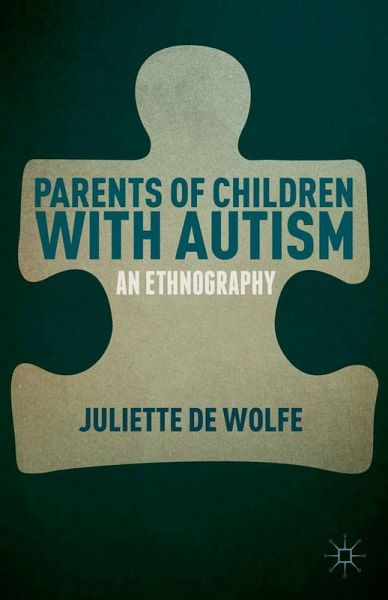
Versandkostenfrei!
Versandfertig in 6-10 Tagen
Weitere Ausgaben:

PAYBACK Punkte
25 °P sammeln!





In a readable and highly accessible ethnographic account that is shaped by the stories of families and the voices of parents, De Wolfe examines how parents of children with autism navigate the educational and medical systems, understand their own and their children's bodies, and support and educate one another.
Juliette de Wolfe is a Special Education Resource Teacher in the Arlington Public Schools, Arlington, Virginia, USA. She holds a PhD in Anthropology and Education from Teachers College, USA.
Produktdetails
- Verlag: Palgrave Macmillan / Palgrave Macmillan US / Springer Palgrave Macmillan
- Artikelnr. des Verlages: 978-1-349-49336-4
- 1st ed. 2014
- Seitenzahl: 196
- Erscheinungstermin: 10. Juli 2014
- Englisch
- Abmessung: 216mm x 140mm x 11mm
- Gewicht: 254g
- ISBN-13: 9781349493364
- ISBN-10: 1349493368
- Artikelnr.: 45074948
Herstellerkennzeichnung
Palgrave Macmillan
Tiergartenstr. 17
69121 Heidelberg
ProductSafety@springernature.com
"A poignant, informative, and deeply thought-provoking study of parents as 'autism warriors'. Unlike those who have gone before her, de Wolfe shifts our focus away from families and organizations with ample resources. She looks at working-class parents who must fight for their kids' needs in contexts framed by limited resources and a lack of specialized, day-to-day help. This is a study of grassroots organizing from the ground up, a must read not only for other parents but for professionals, family members, and neighbors as a means to learn how autism parenting is inescapably a twenty-four-seven job, one performed with perseverance, determination, and dignity." - Lesley A. Sharp, Ann Whitney Olin Professor of Anthropology, Barnard College,
Mehr anzeigen
USA; Senior Research Scientist in Sociomedical Sciences, Mailman School of Public Health, Columbia University, USA
"A sophisticated, sensitive, and extremely detailed and perceptive account of what it means to be an 'autism parent'in contemporary US society. De Wolfe does not parachute in and out of her informants' lives, but stays with them over the long haul and learns to view the world and their children through their eyes. Exemplary in terms of its concern for the dignity and humanity of its subjects, whose lives and struggles it depicts with great empathy." - Gil Eyal, Professor of Sociology, Columbia University, USA
"With this book, de Wolfe makes a triply significant contribution to defining discourses of themoment: autism, diversity, and education. With her steady, sensitive voice, she shows us how autism is best understood not as a static label but as a dynamic lived experience, and how conceptions of diversity are incomplete if they are not inclusive of disability. She explores how education is, in its most robust application to human development, the acquisition of new repertoires of practice in response to meaningful contextual demands." - Katherine Richardson Bruna, Associate Professor of Multicultural Education, Iowa State University, USA
"A sophisticated, sensitive, and extremely detailed and perceptive account of what it means to be an 'autism parent'in contemporary US society. De Wolfe does not parachute in and out of her informants' lives, but stays with them over the long haul and learns to view the world and their children through their eyes. Exemplary in terms of its concern for the dignity and humanity of its subjects, whose lives and struggles it depicts with great empathy." - Gil Eyal, Professor of Sociology, Columbia University, USA
"With this book, de Wolfe makes a triply significant contribution to defining discourses of themoment: autism, diversity, and education. With her steady, sensitive voice, she shows us how autism is best understood not as a static label but as a dynamic lived experience, and how conceptions of diversity are incomplete if they are not inclusive of disability. She explores how education is, in its most robust application to human development, the acquisition of new repertoires of practice in response to meaningful contextual demands." - Katherine Richardson Bruna, Associate Professor of Multicultural Education, Iowa State University, USA
Schließen
Für dieses Produkt wurde noch keine Bewertung abgegeben. Wir würden uns sehr freuen, wenn du die erste Bewertung schreibst!
Eine Bewertung schreiben
Eine Bewertung schreiben
Andere Kunden interessierten sich für



